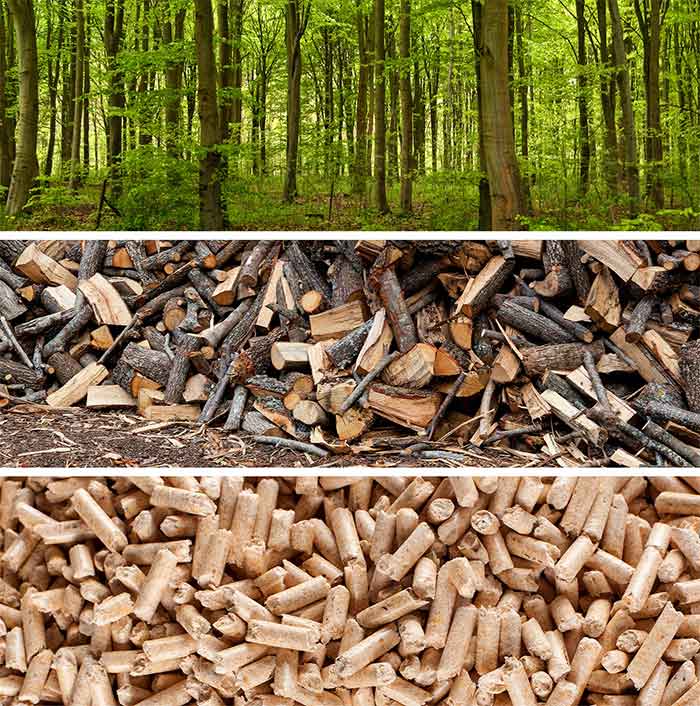
The special theme of the World Environment Day observed on June 5 relates this year to the restoration of ecosystems, certainly a subject of very great importance in times of so much ecological ruin. It is even more encouraging, and of more durable value, that the United Nations has declared 2021-30 to be the UN Decade for Ecosystem Restoration and this decade will be launched on June 5. While this work is also a part of the normal agenda of the United Nations, expectations are being expressed that the United Nations, led by its two agencies the United Nations Environment Program( UNEP) and the Food and Agriculture Organization ( FAO) , will now be giving much more emphasis to promotion of Ecosystem Restoration compared to normal times.
The publicity literature for the launching of the new decade states that along with restoration of ecosystems there can be very significant gains in two areas of climate change mitigation and creation of jobs. It is not difficult to see that tremendous potential indeed exists for this, with the added advantage that the jobs created may be very creative and sustainable ones, and such jobs may well be created in remote places and among vulnerable communities where these are more needed.
To give an example, in the context of several countries like India, several of these jobs can be created among tribal communities living in more remote villages, or among hill people living in very inaccessible areas including parts of the Himalayan region.
One of the obvious examples of such work relates to regeneration of degraded forest areas. In a typical degraded forest area, one of the obvious approaches for regeneration and restoration would be to involve the local community with special emphasis on weaker sections and women. With their help and support from an official agency, patches of the degraded area can be closed to human intervention for a period considered adequate for this purpose. As one patch after another is regenerated the entire forest can be regenerated within a decade or so. This will lead to an enhanced based for sustainable livelihoods of people based on minor ( non-timber ) forest produce including fodder, although care will have to be taken to ensure that again there is no excessive pressure and forest health is maintained on the basis of same mobilization which made possible the restoration in the first place.
Hence environmental education including a strong component on sustainability aspects has to be an important part of such efforts. If this is possible, then clearly the livelihood base in a remote area will be enhanced significantly on a sustainable basis ( other than the jobs created in the course of the restoration process) . In addition of course the entire effort will contribute greatly to climate change mitigation and adaption, soil and water conservation.
A question here is whether sustained support for the community effort can be ensured. Particularly in the early stage support for such community efforts is needed. In India there are several existing schemes under which such work can be supported but aside from patches of success stories here and there, any great success at national level has not taken place yet. To what extent will the situation change specifically in the Decade for Ecosystems Restoration? Will the certain availability of longer-term funds for such works of undoubted importance increase? The UN system often promotes some good initiatives, but can it also contribute more specifically in terms of ensuring a significant and definite increase in unconditional funds ( not loans but grants), to coincide with the Decade for Ecosystem Restoration?
Similar kinds of work can also be supported by the special green fund to be created as a part of UN climate change negotiations for helping the poorer countries in their climate change mitigation and adaption programs. 100 billion dollars was supposed to be made available by the developed rich countries for this purpose on annual basis. With about one-fifth of the people living in poorer countries, India would have been in a position to get 20 billion dollars from this fund on annual basis for such work and other related work. But such promised funds are nowhere to be seen. The United Nations despite good intentions has not been able to ensure the availability of promised funds to poorer countries. So we do not know to what extent all the good declarations of ecosystem restoration will actually result in more specific committed funds for this purpose in poorer and poorest countries.
Secondly, the challenge ahead is not just one of restoring ecosystems but also the one of preventing further destruction of ecosystems. Who was most responsible for destroying the existing ecosystems which we are now trying to restore. In many cases these are big business interests, including multinational companies and their local agents. Even now all the time the new and ongoing projects of these most powerful actors on the world economic scene which destroy forests and other ecosystems are being reported on daily basis. The entire notion of protecting a forest ecosystem is destroyed when a most powerful company appears on the scene which has only one aim of extracting minerals from this land.
It is not clear to what extent such ongoing, accelerating ecosystem destruction is going to be opposed by the United Nations system in the course of the decade for ecosystem restoration. Is such opposition at all on the agenda, and will it get due importance in the overall efforts? What is deeply worrying is that the United Nations agencies have been increasingly silent and non-committal on such issues. Instead many of these multinational companies involved in ecosystems destruction at various levels have good accommodative relationships with several United Nations agencies. In agriculture and in other areas the concerned UN agencies involve them closely in their programs.
All these issues are very relevant to eventually how this UN decade evolves, its actual achievements and results. The reality may well differ from the rhetoric in several cases. No doubt there will be several celebrations of this decade in the days to come, and it will be well to keep in mind a more sincere commitment to ecosystem restoration on such occasions.
Bharat Dogra is a journalist and author, is Convener of Campaign to Save Earth with its SED Demand ( declaration of next decade as save the earth decade). His recent books include Planet in Peril, Protecting Earth for Children, Man Over Machine and Earth Without Borders.
GET COUNTERCURRENTS DAILY NEWSLETTER STRAIGHT TO YOUR INBOX
















































